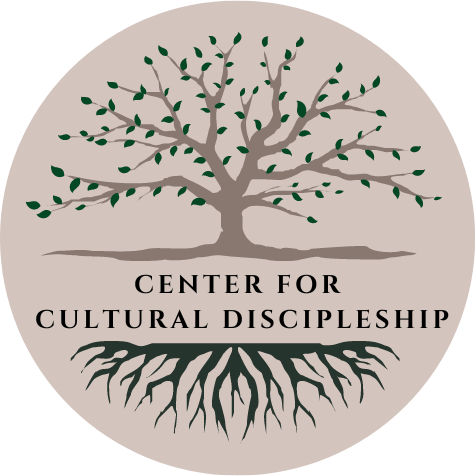I clearly remember the rain fitting my mood one evening in southern California as my friend told me of his dreams. He wanted what so many others wanted: a spouse, children, a home, a white picket fence. Why should it matter that he wanted this with another man? I wished to tell him that I believed it was possible for God to honor the life he craved. After all, I understood some of it. I was single, in my early 30’s, with no prospects of marriage or family. I understood this deep longing to share life and love. I wanted to affirm his vision of a happy life. I wanted to agree, so badly. But I couldn’t.
What do we do when we are caught between a moment when we can either hurt our friend’s feelings or betray our understanding of God’s goodness? In these moments we are faced with a decision that could cause disagreement, pain, or worse, the belief that we don’t value or love our friend.
The most popular advice is to simply change our mind.
In some cases, this is not only reasonable but good. My mind needs to be changed. I used to believe that God operated under a system of rewards for good behavior, relating to us merely in response to what we deserve. Time, study of the Bible, and good theology changed my mind.
But some things are impossible not to believe. When I visit my doctor and he says I’m pregnant after one little pee test, I’m stuck. I believe I am pregnant. Could he be wrong? Yes. Could I be one of the few cases in which the test is flawed? Sure. Do I believe I am pregnant anyway? You betcha. In some cases, changing my mind is not only impossible, but my friend wouldn’t really want me to change my mind anyway.
The Reality in Which We Live
Our ability to change our minds on moral questions will always be anchored to our understanding of reality. Do you believe God is there? What then? If reality begins with God creating the world for specific purposes and with design elements that work well when followed, then this reality bears upon us and is inescapable. If our starting point is God, His creation and His goodness we have no more control over Him than we do over a pregnancy test.
If you don’t believe God is there, I expect you will see reality very differently and this makes sense. Without God, goodness and any moral fabric for life unravels. In the end, Dostoevsky was right, “If God does not exist, then everything is permitted.” Without God’s goodness to constrain us, we can do whatever we want.
Perhaps you believe God is there, but His moral goodness is flexible to your own desires. Perhaps your notions of right and wrong are tied to your own intuition or rationality rather than his revealed will (the Scriptures). In this case you will be more able to change your mind about right and wrong, good and evil. You will also live in a constant state of confusion and disobedience, failing to surrender to the holiness of your Maker. (Hebrews 5: 12-14) Sadly, you will miss out on the beautiful life God offers.
If you believe God is there, but believe Him to be what you want, I caution you about the lie you are believing. The nature of someone’s identity (God included) can never be changed by the desires of another. My daughter may believe I should approve of living on a diet of sugar and popcorn, but her belief does not make it so. If someone told her, “Oh, I know your mommy. She is the one who serves candy for lunch everyday.” My daughter would simply reply, “I don’t know who you met, but it wasn’t my mommy.”
For the person who believes God is there and that He has told us about Himself and His creation, we can’t change our mind about that reality simply because we want to. It would be like trying to believe I’m not pregnant after the pee test. We don’t make up what is morally right or wrong for us. Right and wrong are not about us. We must submit to what is good. We cannot create it.
Is it loving?
Being constrained by the reality of God and His goodness in this world is risky. We are often charged with being unloving. But what love is this?
Encouraging something as harmful as sin (opposite of God’s goodness) is worse than unloving. It is malicious and self-serving. I have to love my friend toward what is good and beautiful and face the cultural firing squad. Moral sickness is neither right nor beautiful nor desirable. If it is the case that God is really there, He really has revealed Himself in the Scriptures and His gentle path is the best way for all of us, what else should we do? How could I betray my friend and withhold God’s gracious will?
Love, which finds its origin in God rejoices in truth. This means rejoicing in what is true for me and my friend.
When asked on that rainy day in California, I shared my honest understanding of how goodness is experienced in God’s moral boundaries, including the sexual boundaries I desired for my friend and the ones I sought to hold in my own singleness. The goodness I offered my friend was not just some archaic rule to follow and avoid sin. It was an invitation to a fuller experience of life itself: goodness and beauty known and experienced.
Love is patient and kind; love does not envy or boast; it is not arrogant or rude. It does not insist on its own way; it is not irritable or resentful; it does NOT rejoice in wrongdoing, but rejoices in the truth. Love bears all things, believes all things, hopes all things, endures all things. Love never ends. – I Corinthians 13:4-8
Yes, we can talk about whether God is there. We can talk about whether the Bible is true. We can talk about whether God says murder is wrong, sex is reserved for marriage or we should love our enemies. We can talk about whether Jesus really was the son of God and rose from the dead.
And I would love to be challenged on all of these beliefs.
You would not like me otherwise
Finally, I suggest you like me better this way. I thrive under the authority of a living and good God. My final authority is not myself. He is far better than me. God does not just help me understand the goodness of sexuality, life and justice in the world, He constrains and releases His goodness in me. His goodness shapes me.
The humbled and submitted person that bends to the God of creation is commanded and empowered to love, be kind, never act out in violence, be faithful in marriage, diligent in parenting, and forgiving as we have been forgiven. Much like the curator of a museum can never harm a work of art, we can’t harm others. They don’t belong to us. But like the curator, we are charged with participating in God’s restoration of people through the person of Jesus. We are called to deeply struggle for the good of our neighbor.
It is no small thing that we would walk away from submitting to a real and living God. It is no small thing that we would uproot His authority and displace it with a crown on our own heads. You would not like the prideful person it would create.

